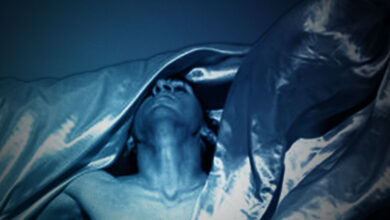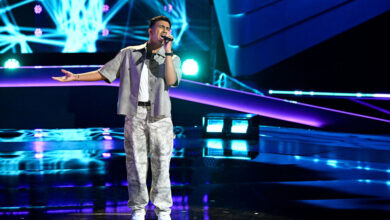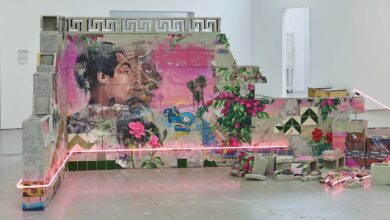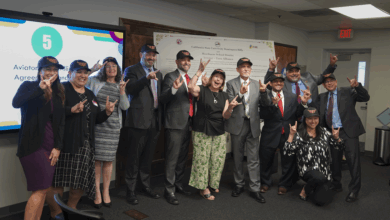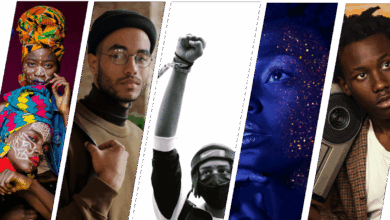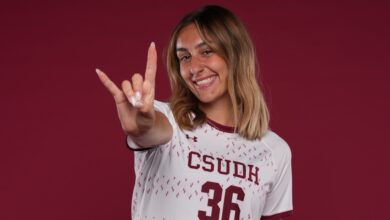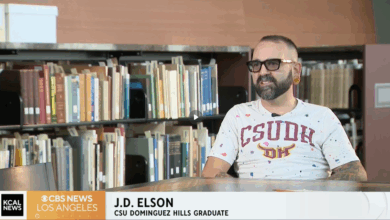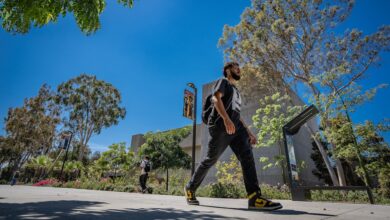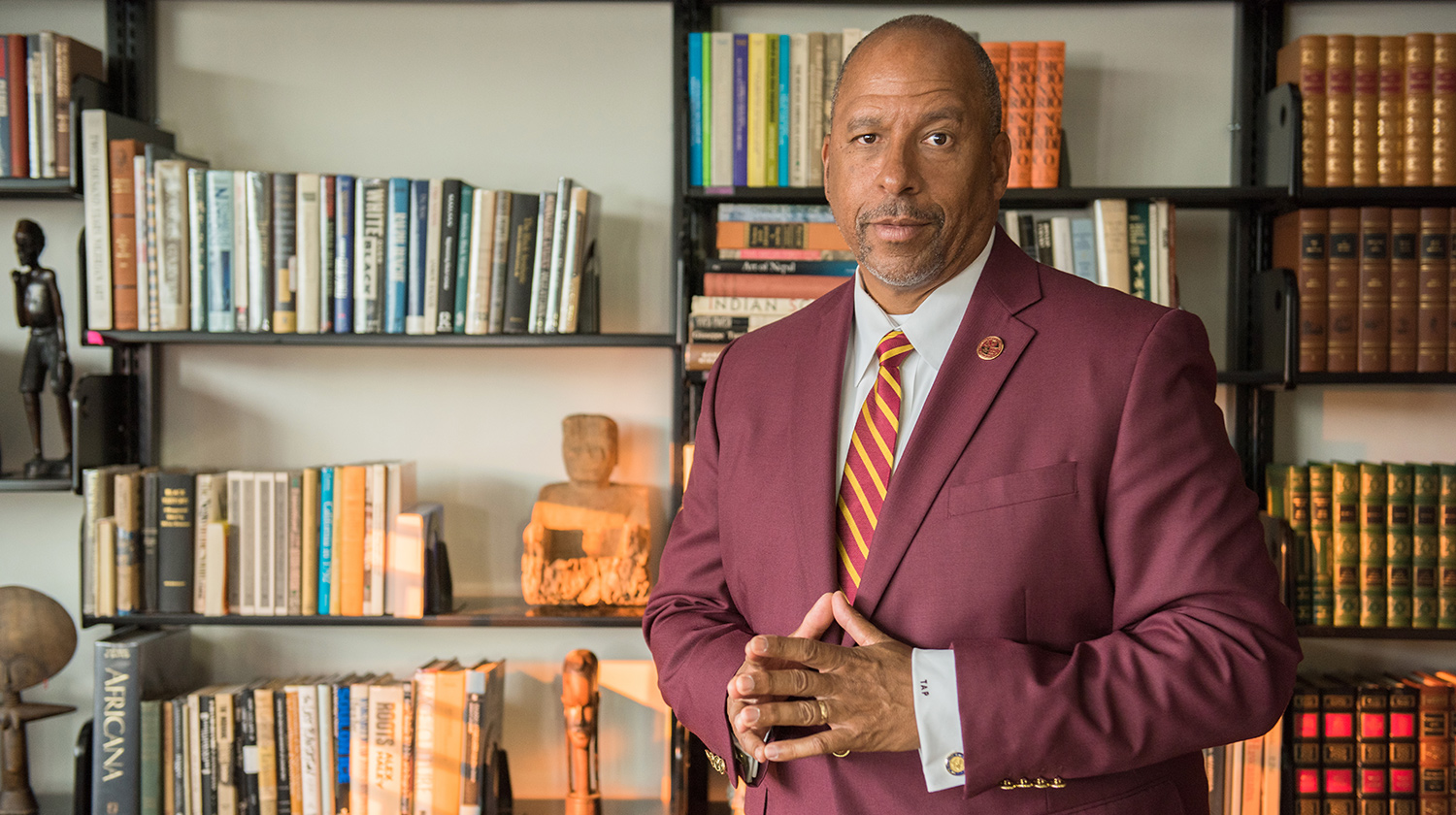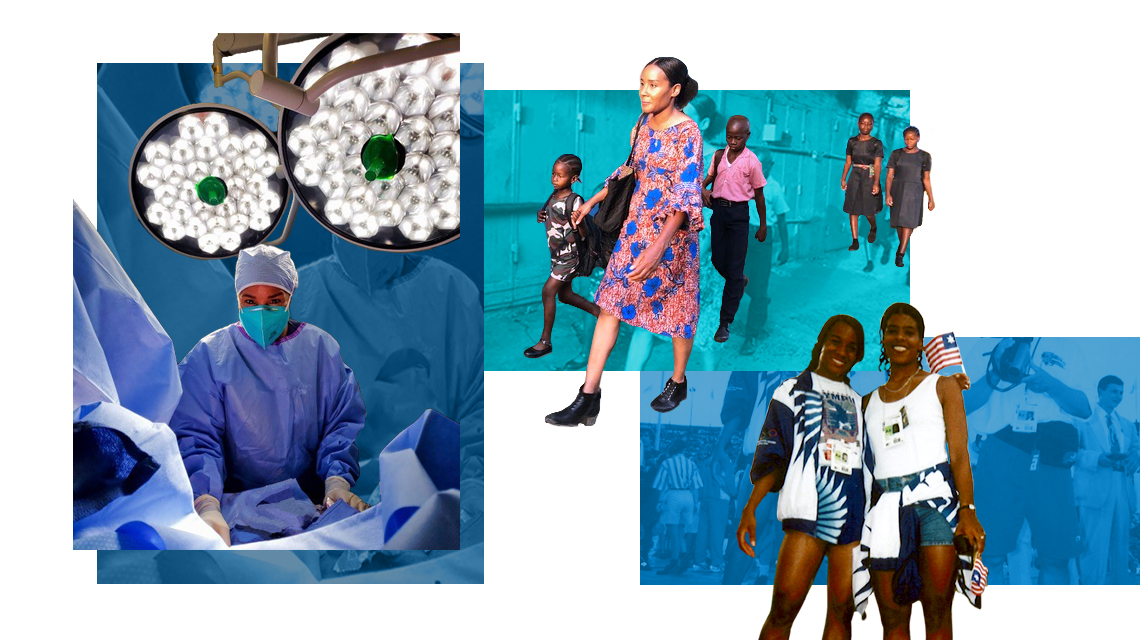
From an early age, CSUDH alumna Gracie Ann Dinkins (’87, BA, Chemistry) was taught the value of giving back to the community. “My mother instilled the importance of service and sacrifice very early in all of her children,” she says. These days, Dinkins is living out those lessons, working as a trauma and acute care surgeon at a pair of Southern California hospitals while also helping rescue an elementary school in Liberia.
Dinkins, who grew up in Liberia, was attending the University of Liberia in 1984 when political and social upheaval that would devolve into a 14-year civil war in the country disrupted her educational journey “The country experienced serious civil unrest and student-led riots that year, and I lost a number of friends to those events,” she recalls. “My family sent me to the United States to live in California with family members and resume my interrupted college education.”
She was taken with the CSUDH campus from the moment she set eyes on it. “As I walked down a street in Carson, not too far from my aunt’s home, I came across a beautiful and open campus, bordered by trees and with signs welcoming everyone. CSUDH made my transition from Liberia to Los Angeles very seamless. They accepted my credits, placed me into classes appropriate for pre-med students, and offered me a chance to engage in federally funded academic research. CSUDH was an incubator for so many of us!”
Dinkins graduated from CSUDH in 1987 with a degree in chemistry, then went on to attain her medical degree from UC Irvine. She began working as a trauma and acute care surgeon at Lynwood’s St. Francis Medical Center in 2004. Dinkins joined the staff at Martin Luther King, Jr. Community Hospital in South Los Angeles in 2018, and currently holds positions at both local hospitals.
When asked why she chose such a demanding field as trauma surgery, Dinkins answers, “I feel that trauma surgery chose me. It was the specialty that gave me the most work to do, the most challenging patients, the least amount of time to perform an intervention, and the highest levels of satisfaction–along with the most painful losses. It fulfilled my desire to use everything I had learned, lived through, and acquired to serve a population that demanded that amount of sacrifice.”
Sprinting to the Olympics
Even as she was pursuing her education and starting her career, Dinkins was enjoying a successful run as an Olympic athlete. “I discovered that I could ‘run fast’ around the age of nine. My classmates were all about two years older than me, and were not too pleased to see me ahead of them during gym class,” she says.
“It was not until I began college at the University of Liberia that I felt free to express myself through running. In the 1980s, very few women ran for sport in Liberia, so I trained mainly with male athletes. I became their ‘rabbit,’ and paid young street kids a quarter to climb up on my shoulders while I hill trained, rather than lugging bags of sand like my male counterparts,” she recalls.
Dinkins’ first trip to the Olympics was “rather impulsive,” she says. She found out that Liberia was forming a track and field team and was looking for interested athletes. Dinkins signed up, and within a few months found herself competing as a sprinter in the 1984 Olympics in Los Angeles, the first female athlete to represent Liberia at the games. “It was a long way from the dusty tracks of home to the immaculate UCLA track lanes.”
Her athletic career was sidelined for 12 years while Dinkins completed her education and began her career as a surgeon. In the mid-90’s, she accepted a research fellowship at UC San Francisco that allowed her enough free time to take up running again. “I revived my love of running, and found a great coach in the Oakland area,” says Dinkins. “I managed to qualify and compete in the 1996 Atlanta Olympics in the 400 meters. I set a national record at that time, which remains Liberia’s Olympic record to this day.”
Dinkins returned to her surgical residency shortly after the 1996 Olympics, but continued to train and represent Liberia in various track and field events, including the World Championships, African Championships, and the 2000 Olympics in Sydney, Australia. She retired from sprinting soon after the 2000 Olympics, at the age of 33.
Her track career remains one of Dinkin’s proudest accomplishments. “I always felt that it was important for me to be a female athlete representing Liberia on the world stage. Liberia can boast of electing the first female African president, but it has always been a patriarchal society. Women athletes were historically coached, managed, and often abused by men. I experienced a lot of opposition and ostracism by speaking out against unjust practices and aggression leveled at female athletes.
“Lacking any female role models, I decided to take on that role for the athletes coming after me, and started my own track club in Liberia. This led to more leadership roles, such as becoming the team physician and manager for two Liberian Olympic teams. I have now passed that baton to the next generation of Liberian athletes, and they are responding well to the call for leadership.”
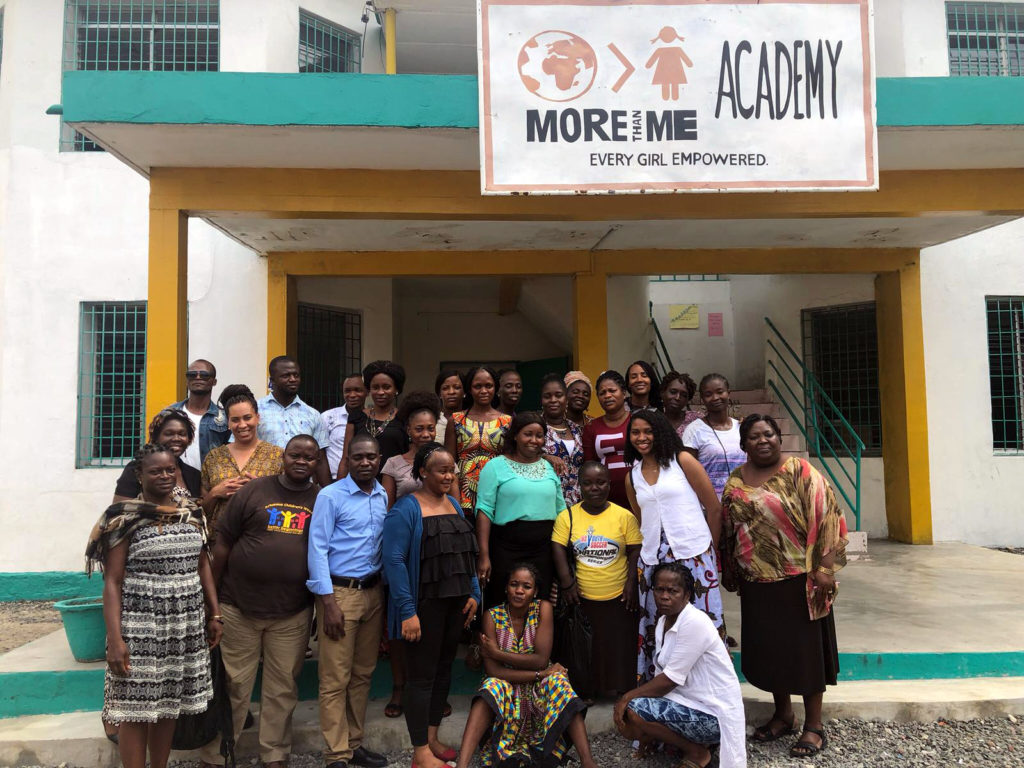
Transitioning into Philanthropy
For the past several years, Dinkins has devoted much of her time to developing the educational infrastructure in Monrovia, the capital of her native Liberia. She founded the Kutoa Afrika Foundation, a non-profit devoted to creating safe spaces for students, especially girls, trying to pursue their education.
The project began when Dinkins found out about the controversy swirling around the More Than Me Academy in Liberia. A counselor was found to have been sexually abusing students at the small, charity-run school for girls, and the community was demanding that the school’s doors be shuttered.
“Public opinion demanded the immediate shut-down of the school,” says Dinkins. “Hundreds of girls were facing the prospect of going back to the streets instead of returning to their beloved campus. Parents were anxiously appealing to the government and hoping for a reprieve. The administration and staff were swamped with demands for reform, transparency, and a review of the school’s safety practices. What could I do to help?”
“I began with my own memories of being a child in Monrovia. As a child subjected to bullying and torment, I sought safe spaces to shelter from a seemingly uncaring world; the library offered wise insights from long-dead authors, while the outdoors accommodated my role-playing and dreams without judgement. I decided to create an amalgam of the two and named it the Safe Space Program.” The program aims to create ‘safe spaces’ on school campuses where students can read, study, or relax in a comforting, caring environment, with trained trauma counselors available if needed.
She formed the Kutoa Afrika Foundation in order to help manage and launch the Safe Space Program and Yasmine’s Closet, an initiative aimed at creating a repository of personal care items that students on campus would have free access to. Dinkins eventually was asked to join the board of Hilltop Schools, the organization tasked with taking over the school from the charity that had been running it.
Since joining the board, Dinkins has been intimately involved with getting the school back on an even footing. In addition to setting up the campus Safe Space Program in a trailer on the campus, she has created a new campus safety program and is setting up a digital learning center for the students.
“One of the most telling impediments to transforming a community is lack of accessibility to computers and digital learning,” she explains. “We purchased a shipping container, transported it to the campus, and are in the process of turning it into a classroom, with up to 15 learning modules and a smart TV that will enable the students, teachers, and community to interact and learn with instructors around the world.”
In the coming years, she hopes to expand the curriculum through 12th grade, acquire land for a new campus, and eventually open the school’s doors to boys, as well.
“These are big dreams,” she admits. “They will require committed effort over the coming years. But there is no turning back. We can only move forward. We have the vision, the talent, and the tenacity. I have personally committed myself and the Kutoa Afrika Foundation to the completion of the work. Helping save the More Than Me Academy has been an illuminating and humbling experience for me, and it has been an honor to work with my exceptional colleagues in Liberia.”

